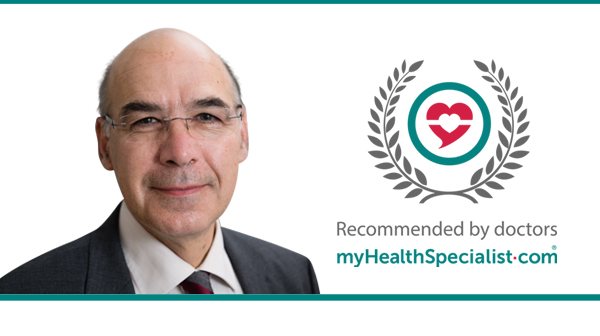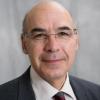
Why did you choose your particular specialty?
There were 3 reasons:
- The hope that advances in neuroscience will help relieve pain and mental suffering
- The opportunity to get to know patients well and work together to create opportunities to work out better motivations, aims in life and change
- Help to free patients who were incarcerated in the old mental institutions, and support them to live safely in the community
What do you enjoy most about your job?
I love listening to patients, trying to understand their predicament and circumstances. It is important that patients feel respected, understood and supported emotionally in order to find the right treatment approach.
What one thing do you wish every member of the public knew?
It is necessary to mistrust leaders. Sooner or later they let us down. We must all lead our own lives.
What three traits define you?
- Patients tell me that I am kind and compassionate
- Colleagues tell that I am thoughtful and inspiring
- I like to think that I am fair minded and forward looking
Who is your inspiration?
Three people have inspired me in my work:
- My father, Denis Ikkos, was an outstanding clinical and academic Endocrinologist (a medical specialist in hormones and metabolic medicine). He had full command of his field and lively curiosity about the psychology of his patients. This curiosity inspired me to pursue a medical career in psychiatry, with emphasis in psychosomatic medicine, including chronic pain.
- My first training consultant, Robin Jacoby, was equally outstanding in Psychiatry as my father in Endocrinology. He later became Professor of Old Age Psychiatry at Oxford University. He was fully up to date in his scientific knowledge and made every effort to ensure that patients received the right treatment. He was also very aware of the limitations in our knowledge and was very supportive of the members of the multidisciplinary team trying to help patients their own way.
- The former President of the Royal College of Psychiatrists, Mike Shooter, was my third inspiration. For ten years, between 2001 and 2011, I was a member of Council at the College, first as Chair of the London Division and then as Honorary Treasurer. Mike was President from 2002 to 2005. He was a marvelous colleague who made me and many others truly feel that the College was ours, not least through his masterful chairing of council and common touch all around. He also worked hard to protect patients’ human rights and to acknowledge the remarkable contribution families often make to good care.
What accomplishment in your life are you most proud of?
To work with a mental health services users’ organisation called “Barnet Voice” to teach new trainee doctors in psychiatry how to listen and interact with patients. Teaching took place once a week and included talks and role-play. “Barnet Voice” wrote clinical scenarios for an actor to play and the doctor to interview. Then the patients helping with the teaching would make useful comments. Every 6 months we would have a new group. Even now, about ten years since we stopped, I meet former trainees coming up to me to tell me how helpful it had been. Because I was there for 6-7 years, I learnt a lot from the patients as well. What I learnt changed my practice, to be better able to see things from the patient’s perspective. I feel sorry that such an experience is not available for most doctors even today.
If you could do another job for just one day, what would it be?
I would like to be a pole vaulter. It demands dedication, speed, strength and skill. It must be amazing, flying over that high bar and then down towards the soft canvas.
Alternatively, I would have liked to have been a member of the World Cup winning Brazilian football team that beat Italy 4-1 in the 1970 Final in Mexico City. The team was full of balance, flair and brilliant creativity; and what a score against the meanest defense of its time!
What advances in medicine are you most excited about?
Many doctors and patients are dazzled by technological advances, and they are right to be so. However, what has been most startling and important during my career has been the clear confirmation that simple things like a reasonable life-style, sound nutrition, regular activity, rewarding work, rewarding friendships and relationships, and avoidance of excess (e.g. alcohol) are crucial to maintaining, preventing and recovering from ill health. In other words, science has shown that in important ways we can all be our own doctor to some extent.
What (health) app would you most recommend?
There is no health app that I would specifically recommend. Instead I would draw attention to the most informative “Mental Health Information” pages of the Royal College of Psychiatrists website. They are full of up-to-date, scientifically sound, practical, patient- and family-friendly information about a whole range of mental health problems. You may find the A to Z index (from “Adolescence: surviving adolescence” to “Worries about weight and eating problems”) on: http://www.rcpsych.ac.uk/healthadvice/atozindex.aspx

Prof. George Ikkos, Consultant Psychiatrist
Book an appointment with Prof. George Ikkos
Read Prof. George Ikkos’ latest article on ‘Pain and anxiety’